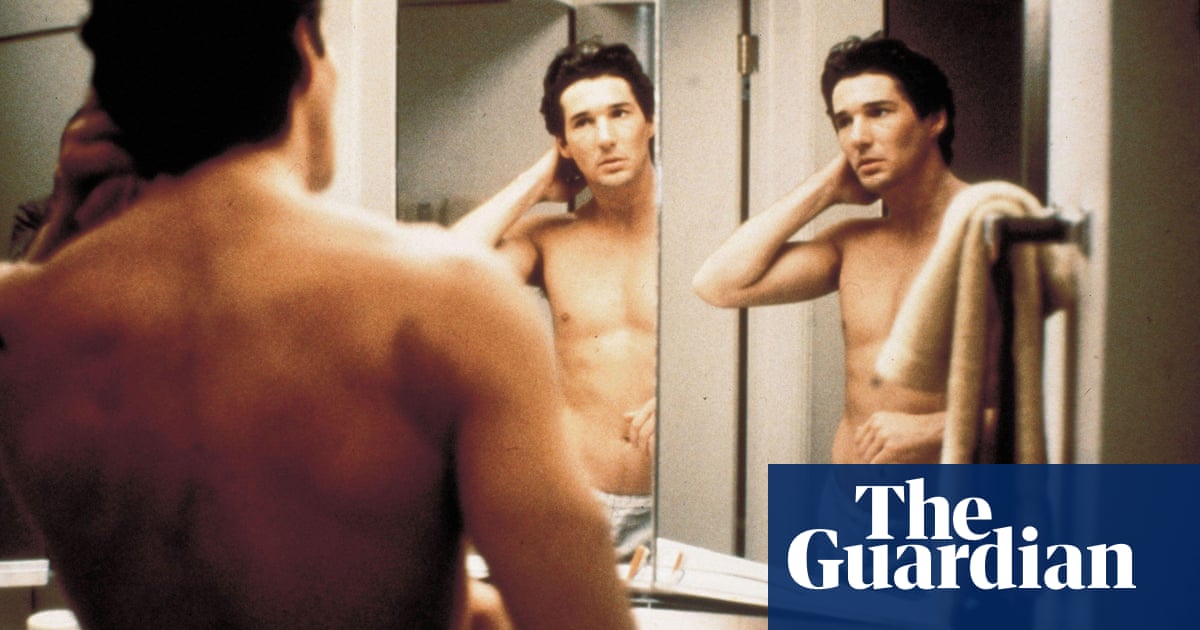
When Richard Gere cruised down an LA highway at the start of the 1980 film American Gigolo – gleaming convertible, sharp suit – it shifted the tectonic plates of cinema. Here was a man, filmed in attentive, ogling closeups, who invited us to objectify him: a sex worker dedicated to pleasing his older clientele, his skin doused in hot California sun, a wardrobe bestowed by Giorgio Armani.
It helped signal a new way of watching men on screen, kickstarting two decades of films that tied pleasure and danger into a heady knot, ready for audiences to lasciviously unpick. By the mid-90s, erotic thrillers were banking not just several hundred million dollars at the box office, but Oscar nominations for the leads.
Now, it seems, they are back. First there was the Showtime series of American Gigolo starring Jon Bernthal. Last month, we got a first glimpse at Fatal Attraction, Paramount+’s remake of the 1987 classic, set to premiere in April. A TV reworking of David Cronenberg’s Dead Ringers is imminent, with Rachel Weisz starring as twin gynaecologists (originally played by Jeremy Irons). Netflix is adapting the novel Damage – once a movie that also starred Irons – into a show called Obsession, with Richard Armitage. Peacock is remaking the 1996 erotic thriller Fear. And last week, Apple TV+ announced Presumed Innocent with Jake Gyllenhaal and Ruth Negga, adapted from the 1990 erotic thriller of the same name.
But why are TV executives so keen to develop remakes of a genre that fell from favour so drastically? Kate Hagen, the senior vice president of screenplay platform The Black List, sees TV as the natural next step. “Erotic thrillers fell firmly into the middle-budget movie category, and like many other middle-budget movies of yesteryear, they have now found a home on TV,” she says.
The timing is notable, too. “A lot of folks working in TV now came of age during the erotic thriller’s peak,” says Hagen. “Those movies had a significant impact on many of us, because they felt taboo or illicit in the age before live sex was two clicks away online.”
It’s also possible that the erotic thriller has renewed appeal because it can give voice to women’s rage post-#MeToo – something that has been articulated in a wave of recent films such as Promising Young Woman and Don’t Worry Darling.
“With the number of social changes around gender and sexual power dynamics, these are the kind of materials that are ripe for being retooled,” says Christina Newland, editor of the anthology book She Found It at the Movies: Women Writers on Sex, Desire and Cinema. “And maybe there’s an attempt to reach a more sex-positive and – frankly – thirsty audience.”
To appeal to today’s viewers, the taglines for these new shows are packed with modern buzzwords. Fear will focus on “toxic relationships”. Fatal Attraction will tackle “coercive control”. Dead Ringers will delve into the “underfunding of women’s health”. Not particularly sexy, on paper.
But we’re yet to see how most of these remakes will use sex to make cultural statements. “Will they deal with the nuances of human sexuality – as a performance, as a lived reality, as currency, as a conduit to intimacy or even spirituality – the way Paul Schrader’s American Gigolo does?” asks Karina Longworth, host of podcast You Must Remember This and its recent season Erotic 80s. “That’s what I think film-makers haven’t wanted to touch recently, because the culture is so quick to ‘cancel’ anyone who suggests that sex might have grey areas.”
After director Adrian Lyne screened Fatal Attraction to a test audience in the 80s, he was surprised to be met with feedback demanding Glenn Close’s Alex be punished more harshly; he re-edited the ending to appease this point of view. “The audience had no sympathy for such a ‘modern’ female character,” says Longworth. “They wanted the catharsis of watching her die.”
Perhaps the difference in 2023 is that the audience will be saying “good for her!” about Alex’s quest for love and revenge, rooting for cheater Dan’s comeuppance – taking identical plot beats from the original but synthesising who is right or wrong in different ways. Indeed, many erotic thrillers of the 80s and 90s had regressive sexual politics, with plots seeking to re-establish traditional gender roles and enforce the status quo. Today, they may try to correct the narrative.
“Erotic thrillers tend to resonate really deeply with women and the queer community,” Hagen says. “They’re interested in exploring the familiar ideas erotic thrillers presented, but with a more hopefully inclusive take on some of the sexual mores.” There’s no reason why this can’t work, says Justine Peres Smith, a writer who specialises in depictions of the erotic on-screen. “I’d argue that [erotic thrillers] operate within the ambiguity and uncertainty of a changing society.”
Nor is there really an argument that steamy sex can’t be possible in today’s climate of safer sets. “The mandate to hire intimacy coordinators should not scare anyone off making movies about or depicting sex,” says Longworth. A common misconception is that erotic thrillers may have been sleazy or demeaning for the actors. “Zalman King, a producer and writer of 9½ Weeks, pioneered the use of intimacy coordinators in the 90s. He outsourced the choreography of sex scenes to an actual choreographer, and his actors memorised the movements like a dance.”
Smith points to a recent film that succeeded in its mission to thrill, while working within modern expectations of safety. The Voyeurs, a 2021 film directed by Michael Mohan, stars Sydney Sweeney as a young woman who becomes fascinated by her virile neighbours across the street. “It’s sexy and dangerous,” says Smith, “and in interviews, Mohan has explained how the intimacy coordinators help provide a safe environment. It allows the film-maker to craft a sensual and comfortable scene for the actor.”
Sex on the big screen is in a state of steadfast decline (in 2019, Hagen reported, there were fewer sex scenes in films than at any point in the previous 50 years). That’s not the case for television. “What we used to think of as permissible only on premium cable (mostly HBO) is now permissible on pretty much any network,” says Hagen. “Just look at how much sex and eroticism was on AMC’s Interview With a Vampire reboot. Golden age HBO shows like Sex and the City or True Blood also made networks realise sex alone could be a reason to tune in every week, and we’re seeing that in shows like Normal People too.”
Perhaps television truly can be a place where the erotic thriller is reborn. “Sex continues to thrive on TV, a medium that, at its best, plays into the intimacy of the (theoretically) smaller screen,” Smith says. Whether these upcoming shows will manage to balance being interesting from a zeitgeist perspective and sexy on a carnal level, within the hyper-online world of cancellation in which we operate, is yet to be fully seen. But one thing’s for sure: the erotic thriller revolution will be televised.












